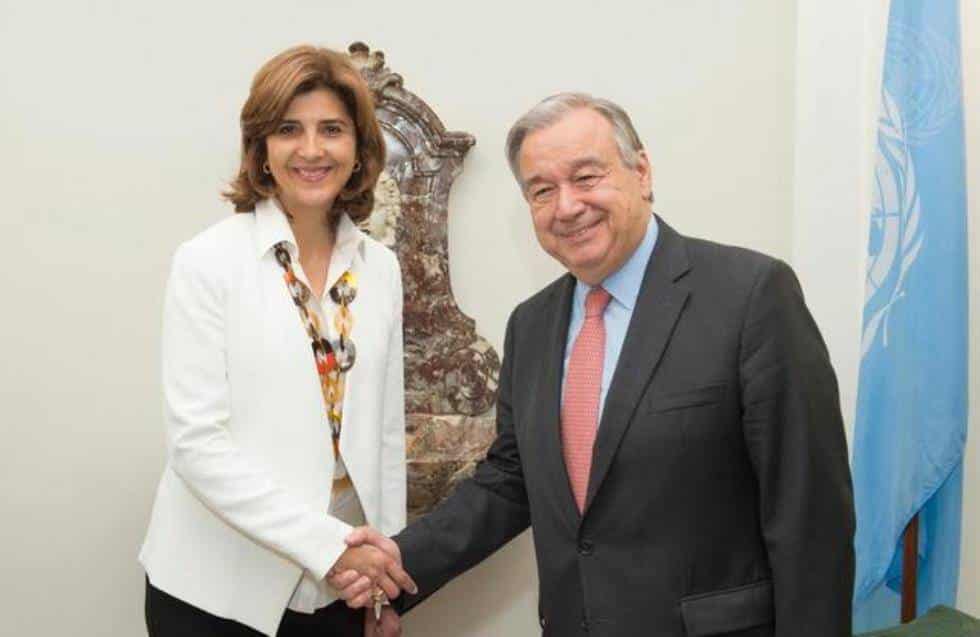The long-awaited envoy was appointed in early January, kicking off the beginnings of a possible new process. UNSG Antonio Guterres appointed María Angela Holguin of Colombia as his personal envoy on Cyprus. He asked Holguín to assume a good offices role on his behalf to search for common ground on the way forward. The appointment was welcomed all round though probably less keenly in the north of the island but Ankara must have been on board since there was more grumbling rather than fussing over the appointment. The announcement came at the same time as Guterres’ latest report on Cyprus, which was fairly downbeat despite the inklings of a new process.
‘Sobering reminder’ UN chief says as 60-year anniversary nears
The new envoy arrived in Cyprus at the end of the month for her first visit. She said her job was to listen. After her meetings in Cyprus she headed for Athens, Ankara and the UK.
Holguin returned in March for further contacts with the two sides, expanding it to the political party leaders as well. Asked if there were any “positive signs” from her meetings so far, she said both sides were willing “to explore”, and that this was “a good thing”.
Time to think of the future UN envoy says after meeting leaders
However, despite all the backslapping over the securing of a new envoy after two years of begging, neither of the two leaders attended a UN event in early March to mark 60 years of Unficyp in Cyprus. Perhaps they were just embarrassed by taking up UN resources for more than half a century. The official reason was that the Cyprus government wanted the reception to be attended solely by representatives of the Republic of Cyprus, which was the host state. The foreign ministry held its own event to press home the point.
At the boycotted UN event, Special Representative Colin Stewart said political courage to solve the Cyprus problem was in short supply and he appealed to the relevant actors to take the “tough decisions” needed.
Also in January, President Nikos Christodoulides announced a series of 14 unilateral confidence-building measures. Opposition Akel called them “low level” in terms of any policy or worth to the Cyprus negotiations. And let’s not forget that 2024 marks 50 years since the Turkish invasion.

